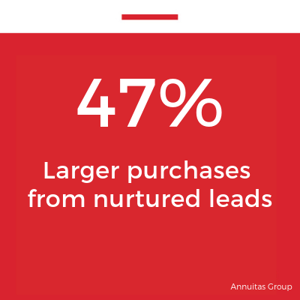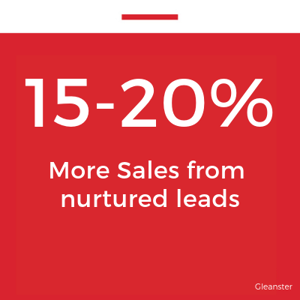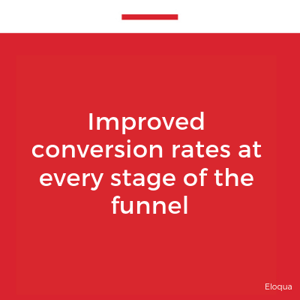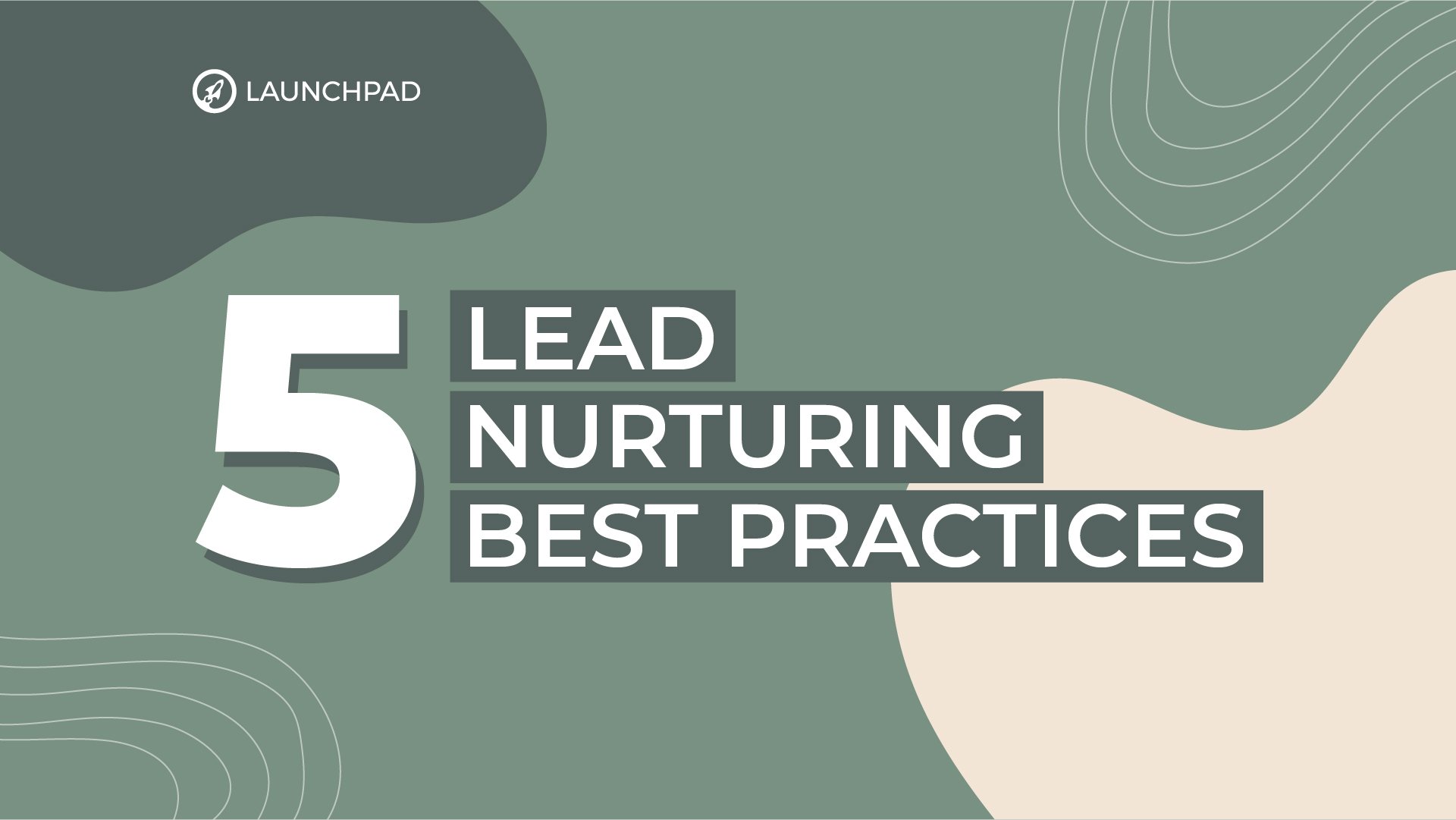
Lead nurturing best practices are often overlooked.
Lead nurturing is the act of guiding a lead to becoming your customer. To nurture a lead is to build rapport with them and show them that you are in fact a company that they can trust and expect a gain when they become your customer. Lead nurturing is an integral part of inbound marketing.
Your goal is to get your potential customer to invest a little bigger in you with every nurturing effort.
Recall the last time you saw an ad online: were you ready to invest in that product/service immediately?
So does that mean that a lot of people aren’t ready to buy from a company immediately?
That would mean 97.65% of people aren’t ready to buy immediately. Or maybe 97.65% won’t buy from those companies.
How do those 10% companies perform 5x better than the average company?
It is the offer versus the perceived value of the product; perceived value can be grown overtime.
Think about it this way, if you were offered a genuine Rolex for RM1,000, you would most definitely buy it because you know ordinarily a Rolex would cost you upwards of RM12,000.
The perceived value of the product far outweighed the offer.
“But, that’s a Rolex, an exquisite product that uses only the finest materials elegantly assembled by master crafstmen into the most luxurious time-keeping piece in the world! It would take an enormous effort and capital to assemble an organization like Rolex.” One would think.

Every single word of that statement is true.
Value is the name of the game, and value can be built upon, little-by-little.
Rolex didn’t start off with diamond embroidered bezels or a waterproof capability of 300-meter dives.
They started out with a singular simple promise and over delivered on it.
“The quest for chronometric precision.”
They built upon that promise with more promises and then over delivered on those as well.
They over delivered on so many promises that Rolex has successfully nurtured the world into the idea of a Rolex being the epitome of luxury.
They’ve nurtured themselves a majestic reputation where a single utter of the word, “Rolex” signals the luxury that comes with it.
A lead nurturing strategy gives you the “Rolex” effect on an achievable scale. With each nurturing stage, you bring your leads closer to becoming fanatically loyal customers who put such tremendous value on your company that they would be near impossible to anger.
If you aren’t convinced that having the best lead nurturing practice is essential yet, let these statistics speak for themselves:
Without further ado, here are 5 lead nurturing best practices:
1. Create content around your customer’s pain points
Focus on the people your product/service provides the most value to and then let them know exactly how you do it. Going back to Rolex, their ideal customers are those who want the highest tier of functional and luxurious time keeping units. So Rolex lets those customers know that their watches:
- Uses the most precise Swiss technologies to keep time
- Works in mint condition despite being underwater for 10 hours continuously
- Uses the most precious materials
Simple promises upon promises that built the prestigious brand we all know today.
2. Personalize

When you create email content, make it personalized. You can:
- Add their name
- Send them content related to the last thing they saw on your site
- Teach them how your service/product helps them achieve their day-to-day goals
This way, leads will feel like you truly understand their pain points and want to help them on a personal level.
3. Create content based on the buyer’s journey
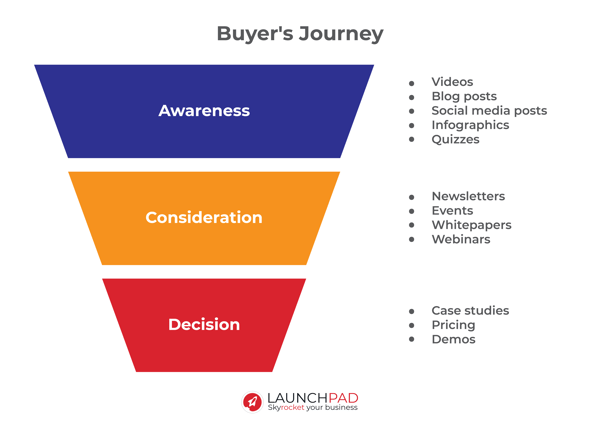
You want to create content focused on a specific part of the buyer’s journey. A buyer’s journey has three phases:
| Awareness Phase | These people are just finding out about your brand, don’t come off too strong and ask for a big commitment. Offer something of value to them like a blog that solves their problems, industry trends, or even a joke related to a problem that they have. |
| Consideration Phase | These are people who know about your brand and is actively looking for a solution that your brand can fix. These people are committed to solving their problem and is in the process of researching their best options. Demonstrate your product/service, invite them to a webinar. |
| Decision Phase | These people have done their research and want to make a decision. Ease their decision by showing social proof. Share with them product reviews, customer testimonials. |
But how do you figure out at which phase those people are in? That part is a little tricky due to the amount of variables to consider.
Why not schedule a free consultation with us to figure out how we can optimize and boost your lead nurturing efforts together?
Schedule free consultation now.
4. Don’t send them emails everyday
This is a sure way to lose even the most interested leads. Instead, space out the time between emails sent to a lead.
A rule of thumb is to wait about 4 to 7 days in between emails.
5. Segment your leads

Every lead you have is different from one another. Segmenting your leads by:
- Age
- Location
- Job Title
- Interests
Will allow you to sort them out and create a story about them called a buyer persona.
By sorting your leads with these bits of information, you’re able to better figure out their pain points and provide them with much more relevant information.
When this is used in tandem with the buyer’s journey, you can create truly engaging and relevant content.
BONUS: Use an organizational tool
There’s a powerful and free tool that you can use that helps you record, sort, and keep track of your leads.
Hubspot’s free CRM makes creating and segmenting contacts easy for your whole organization.
1. Simply click on the orange 'Create contact' button on the top right
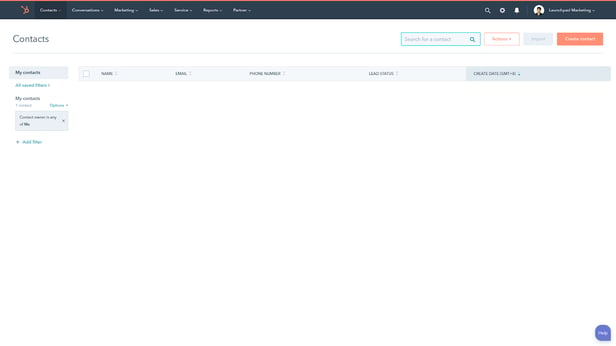
2. Fill in their details
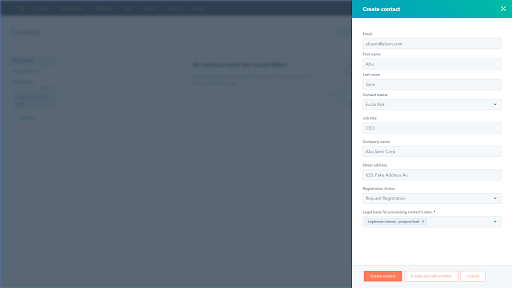
Notice how HubSpot allows you to categorize what kind of lead/customer this person is.
3. And you have a new contact on HubSpot
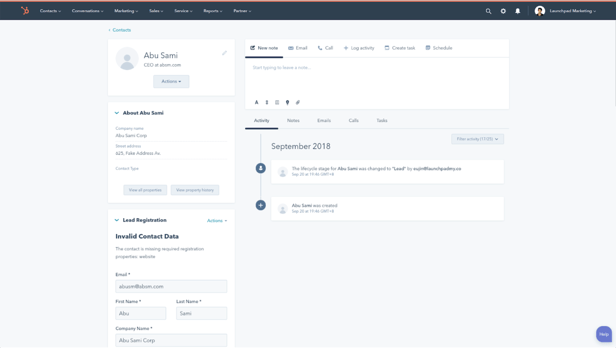
Notice how HubSpot alerts you to missing information and urges you to fix it.
HubSpot sorts interactions with your contact in a newsfeed manner.
HubSpot also allows you to connect your business email to communicate with your contact without leaving the tab.
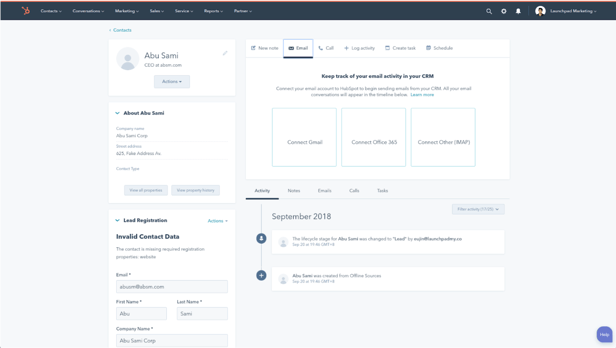
The beauty of HubSpot is that information about your contact is presented in an easy and intuitive way.
You will always be on top of a situation with your contacts and thinking of how to organize contact information will be a thing of the past.
HubSpot provides this amazing service for free and you can start implementing this in your business today.
Or we can help to guide you through the process.




